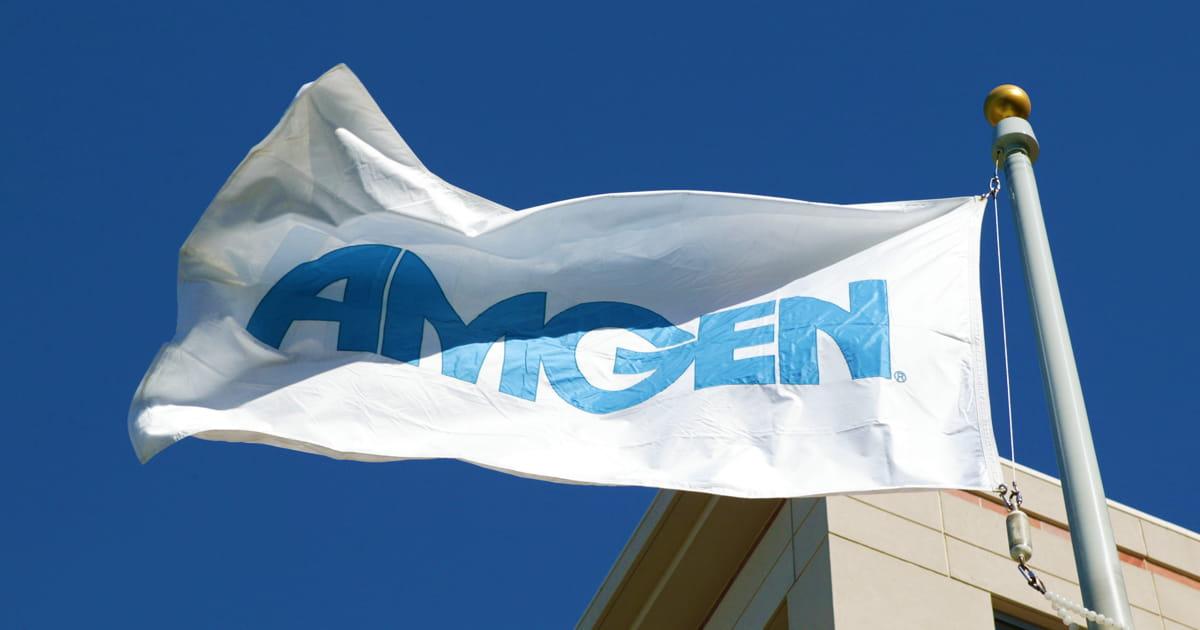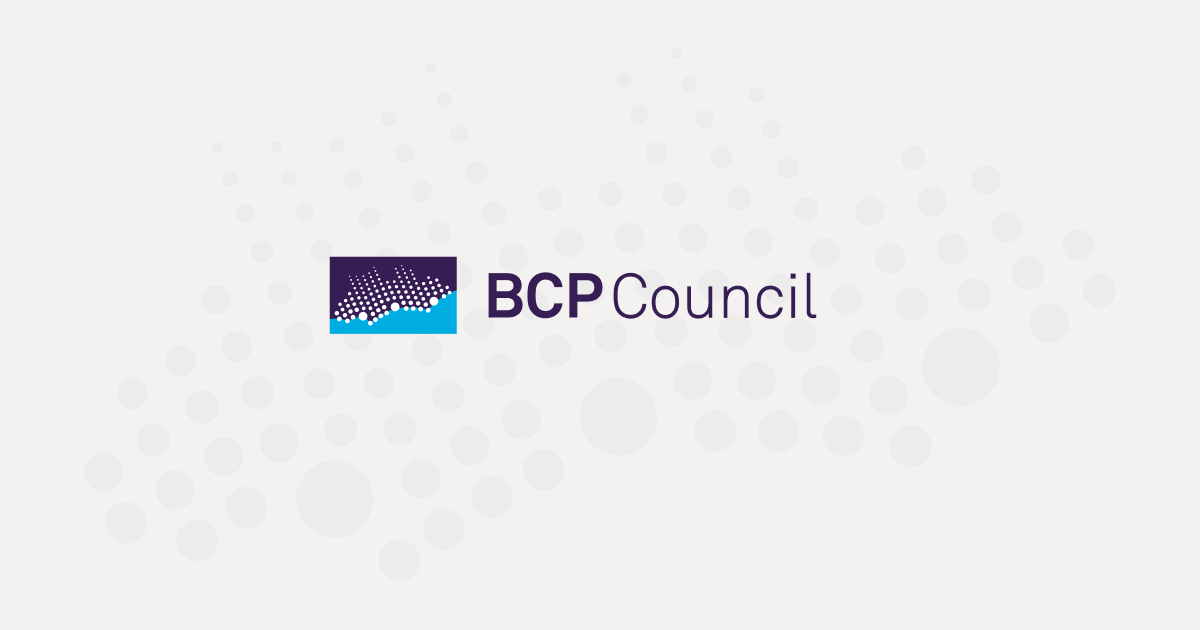Acquisition Adds Differentiated Investigational Molecule Designed to Treat Acute Myeloid Leukemia
THOUSAND OAKS, Calif., Jan. 6, 2026 /PRNewswire/ — Amgen (NASDAQ: AMGN) today announced its acquisition of Dark Blue Therapeutics Ltd., a privately held biotechnology company based in the United Kingdom advancing first-in-class, small molecule-targeted protein degraders for oncology, in a transaction valued at up to $840 million.
The acquisition adds to Amgen‘s portfolio an investigational small molecule that targets and degrades two proteins (MLLT1/3) that drive specific types of acute myeloid leukemia (AML), a fast-growing blood cancer. Preclinical data in leukemia models demonstrate promising anti-cancer activity and mechanistic differentiation from currently available therapies, establishing the rationale for single-agent and combination use to overcome treatment resistance and enhance durability of remission.
“Acute myeloid leukemia remains one of the most difficult cancers to treat, and we see an urgent need for new mechanisms capable of changing the trajectory of this disease,” said Jay Bradner, M.D., executive vice president of Research and Development at Amgen. “This acquisition complements and extends our research in targeted protein degradation and leukemia therapeutics, advancing our strategy to invest early in rising medicines for novel therapeutic targets. The adjacency of this program to our considered expertise in cancer biology will propel MLLT1/3-targeting medicines to clinical investigation for patients facing the challenging diagnosis of AML.”
Amgen expects to integrate Dark Blue Therapeutics into its existing research organization, further strengthening the company’s early oncology discovery efforts.
About Amgen
Amgen discovers, develops, manufactures and delivers innovative medicines to help millions of patients in their fight against some of the world’s toughest diseases. More than 40 years ago, Amgen helped to establish the biotechnology industry and remains on the cutting-edge of innovation, using technology and human genetic data to push beyond what’s known today. Amgen is advancing a broad and deep pipeline that builds on its existing portfolio of medicines to treat cancer, heart disease, osteoporosis, inflammatory diseases and rare diseases.
In 2024, Amgen was named one of the “World’s Most Innovative Companies” by Fast Company and one of “America’s Best Large Employers” by Forbes, among other external recognitions. Amgen is one of the 30 companies that comprise the Dow Jones Industrial Average®, and it is also part of the Nasdaq-100 Index®, which includes the largest and most innovative non-financial companies listed on the Nasdaq Stock Market based on market capitalization.
For more information, visit Amgen.com and follow Amgen on X, LinkedIn, Instagram, YouTube and Threads.
Amgen Forward-Looking Statements
This news release contains forward-looking statements that are based on the current expectations and beliefs of Amgen. All statements, other than statements of historical fact, are statements that could be deemed forward-looking statements, including any statements on the outcome, benefits and synergies of collaborations, or potential collaborations, with any other company (including BeOne Medicines Ltd. or Kyowa Kirin Co., Ltd.), the performance of Otezla® (apremilast), our acquisitions of ChemoCentryx, Inc. or Horizon Therapeutics plc (including the prospective performance and outlook of Horizon’s business, performance and opportunities, and any potential strategic benefits, synergies or opportunities expected as a result of such acquisition), as well as estimates of revenues, operating margins, capital expenditures, cash, other financial metrics, expected legal, arbitration, political, regulatory or clinical results or practices, customer and prescriber patterns or practices, reimbursement activities and outcomes, effects of pandemics or other widespread health problems on our business, outcomes, progress, and other such estimates and results. Forward-looking statements involve significant risks and uncertainties, including those discussed below and more fully described in the Securities and Exchange Commission reports filed by Amgen, including our most recent annual report on Form 10-K and any subsequent periodic reports on Form 10-Q and current reports on Form 8-K. Unless otherwise noted, Amgen is providing this information as of the date of this news release and does not undertake any obligation to update any forward-looking statements contained in this document as a result of new information, future events or otherwise.
No forward-looking statement can be guaranteed and actual results may differ materially from those we project. Our results may be affected by our ability to successfully market both new and existing products domestically and internationally, clinical and regulatory developments involving current and future products, sales growth of recently launched products, competition from other products including biosimilars, difficulties or delays in manufacturing our products and global economic conditions, including those resulting from geopolitical relations and government actions. In addition, sales of our products are affected by pricing pressure, political and public scrutiny and reimbursement policies imposed by third-party payers, including governments, private insurance plans and managed care providers and may be affected by regulatory, clinical and guideline developments and domestic and international trends toward managed care and healthcare cost containment. Furthermore, our research, testing, pricing, marketing and other operations are subject to extensive regulation by domestic and foreign government regulatory authorities. We or others could identify safety, side effects or manufacturing problems with our products, including our devices, after they are on the market. Our business may be impacted by government investigations, litigation and product liability claims. In addition, our business may be impacted by the adoption of new tax legislation or exposure to additional tax liabilities. Further, while we routinely obtain patents for our products and technology, the protection offered by our patents and patent applications may be challenged, invalidated or circumvented by our competitors, or we may fail to prevail in present and future intellectual property litigation. We perform a substantial amount of our commercial manufacturing activities at a few key facilities, including in Puerto Rico, and also depend on third parties for a portion of our manufacturing activities, and limits on supply may constrain sales of certain of our current products and product candidate development. An outbreak of disease or similar public health threat, and the public and governmental effort to mitigate against the spread of such disease, could have a significant adverse effect on the supply of materials for our manufacturing activities, the distribution of our products, the commercialization of our product candidates, and our clinical trial operations, and any such events may have a material adverse effect on our product development, product sales, business and results of operations. We rely on collaborations with third parties for the development of some of our product candidates and for the commercialization and sales of some of our commercial products. In addition, we compete with other companies with respect to many of our marketed products as well as for the discovery and development of new products. Discovery or identification of new product candidates or development of new indications for existing products cannot be guaranteed and movement from concept to product is uncertain; consequently, there can be no guarantee that any particular product candidate or development of a new indication for an existing product will be successful and become a commercial product. Further, some raw materials, medical devices and component parts for our products are supplied by sole third-party suppliers. Certain of our distributors, customers and payers have substantial purchasing leverage in their dealings with us. The discovery of significant problems with a product similar to one of our products that implicate an entire class of products could have a material adverse effect on sales of the affected products and on our business and results of operations. Our efforts to collaborate with or acquire other companies, products or technology, and to integrate the operations of companies or to support the products or technology we have acquired, may not be successful. There can be no guarantee that we will be able to realize any of the strategic benefits, synergies or opportunities arising from the Horizon acquisition, and such benefits, synergies or opportunities may take longer to realize than expected. We may not be able to successfully integrate Horizon, and such integration may take longer, be more difficult or cost more than expected. A breakdown, cyberattack or information security breach of our information technology systems could compromise the confidentiality, integrity and availability of our systems and our data. Our stock price is volatile and may be affected by a number of events. Our business and operations may be negatively affected by the failure, or perceived failure, of achieving our sustainability objectives. The effects of global climate change and related natural disasters could negatively affect our business and operations. Global economic conditions may magnify certain risks that affect our business. Our business performance could affect or limit the ability of our Board of Directors to declare a dividend or our ability to pay a dividend or repurchase our common stock. We may not be able to access the capital and credit markets on terms that are favorable to us, or at all.
CONTACT: Amgen, Thousand OaksElissa Snook, 609-251-1407 (media) Casey Capparelli, 805-447-1746 (investors)
 View original content to download multimedia:https://www.prnewswire.com/news-releases/amgen-acquires-dark-blue-therapeutics-bolstering-oncology-pipeline-302652998.html
View original content to download multimedia:https://www.prnewswire.com/news-releases/amgen-acquires-dark-blue-therapeutics-bolstering-oncology-pipeline-302652998.html
SOURCE Amgen




